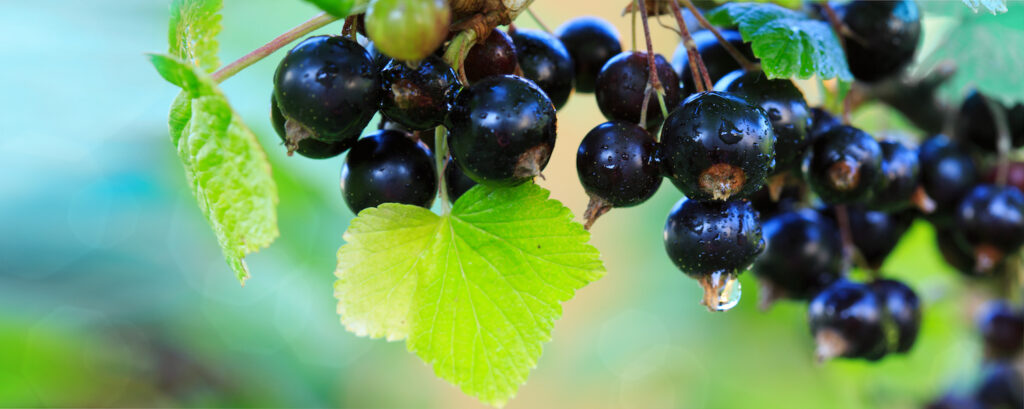British blackcurrant growers excelling in farm biodiversity
30th January 2023
A six-point plan to encourage biodiversity on blackcurrant farms has helped to support struggling wildlife populations, a new report says.

In the past five years, the Farm Stewardship Programme, run by the maker of Ribena, has recorded 37 UK species of concern on farms.
Suntory Beverage and Food GB&I has been working with the Farming and Wildlife Advisory Group on a six-point plan to help blackcurrants grow with nature. Advisors from both organisations offer tailored advice to growers on 34 blackcurrant farms.
The six-point plan covers:
- Hedgerows: managed to create a rich network of boundaries abundant with blossom and fruit.
- Rough grass buffers: protecting adjoining features and providing a habitat for insects, birds and small mammals.
- Green headlands: protecting soils and providing pollen and nectar.
- Farmland birds: erecting at least one nest box per hectare of blackcurrants
- Pollen and Nectar: maintaining an area equivalent to 5% of the blackcurrant area to provide pollen and nectar sources for insects.
- Mature trees: buffering trees from field operations and root damage.
The plan has supported 13 red list and 15 amber list ‘Birds of Conservation Concern’ – including turtle doves, field fares, skylarks, grey partridges and yellow hammers – as well as at least 19 species of mammals, reptiles and amphibians recognised as conservation priorities in the UK.
Farmers have installed over 2,000 nest boxes across their farms, creating secure homes for 1,172 pairs of nesting birds such as barn owls and wrens. The nest boxes have also become home to dormice, bees and pipistrelle bats. At least seven of the UK’s 17 bat species have been recorded on these farms.
SBF GB&I farmers have also sown the equivalent of 116 rugby pitches with specific pollen and nectar seed mixes to encourage pollinating insects.
Rebecca Mills, SW Conservation advisor and FWAG project lead, said: “The SBF GB&I blackcurrant growers have each delivered on the Six Point Plan to bring about positive environmental changes on their farms. Key elements of the plan support many national strategies regarding biodiversity, and the benefits of this work are clear in the range of species recorded on farms we surveyed.
“Many growers have gone above and beyond recommendations in the plan and some of their environmental and agronomic gains are really remarkable.”
Liz Nieboer, SBF GB&I head of sustainability and external affairs, added: “Climate change and weather fluctuations have the potential to threaten blackcurrant growing in the UK, so by acting now to boost the sustainability and resilience of farms, we can protect this vital crop for future generations.
“That is why we’ve gone to extra lengths with the action plans for our network of growers and we will continue to support them as we all navigate our future in a changing climate.”
